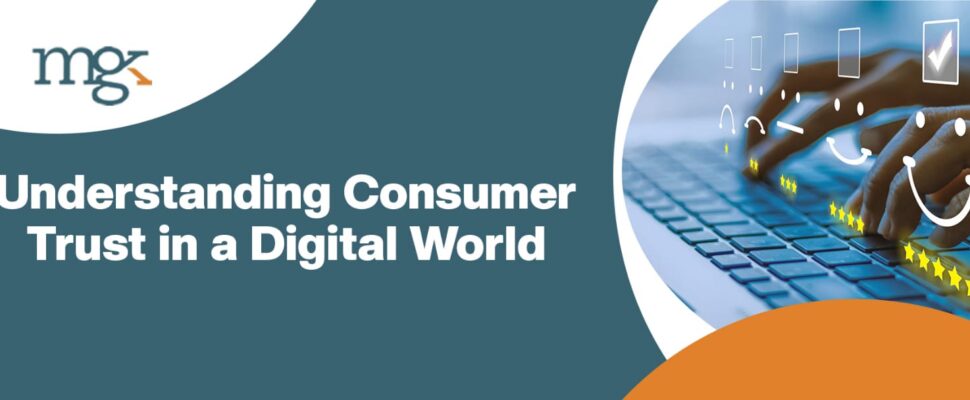Digital trust has become a vital factor in today’s interconnected world as people are more connected than ever before. The Internet has brought more opportunity to exchange ideas and information globally. Customers can order goods online and receive them the same day. Technology works in the background to support these interactions and transactions between individuals, enterprises and external parties. As humans, we are quick to avoid uncertainties and subconsciously tend to gravitate towards things/entities that promise us predictable outcomes. Some of the world’s most successful brands were built on the pillar of trust, and as we move into a fully digital world, trust becomes even more relevant than ever.
What is Digital Trust?
Digital Trust is the ability of an organization to inspire confidence within their digital ecosystem about their intent and capability to deliver the promised services. It is the confidence people have in the ability of digital systems, technologies, and institutions to protect their personal information and enable safe online interactions. With the increasing number of data breaches and cyber-attacks, digital trust has become a crucial aspect of online security and privacy. Today, Digital Trust is viewed as the centerpiece for success—from enhancing brand image and adopting new technologies to bringing in investments, rolling out new offerings and expanding the partner ecosystem.
Pillars of Digital Trust
The concept of digital trust is founded on four pillars;
Security and reliability
Security is the first and most critical pillar of digital trust. It refers to the measures put in place to prevent unauthorized access to personal data, such as firewalls, encryption, and access controls. Organizations must have robust security measures in place to protect sensitive data from cyber-attacks, data breaches, and other security threats. This includes:
- Leveraging on Artificial Intelligence and automation to reduce fraud.
- Implementing security protocols and procedures.
- Conducting regular security audits, and keeping security systems up to date.
- Alerting users in the event of suspicious account activity.
Transparency and accessibility
It refers to the openness of digital systems and technologies, which makes it easier for individuals to understand how their data is collected, processed, and used. Companies must be transparent about their data collection and processing practices and provide clear explanations of their data policies. This can be achieved through;
- Identifying what data is being collected, why it is being collected, how it is being used, and who has access to it.
- Being transparent about any third-party vendors that have access to customer data and ensure that these vendors adhere to the same data protection standards.
Ethics and responsibility
Despite all of its wonders, the digital world is only as moral as those who created it, and it has a dark side. This means that most businesses must comprehend how to repurpose the technology at their disposal in a way consistent with their core values. This allows them to demonstrate to their clients that their business deserves their confidence. The company can enhance this through;
- Handling customer complaints in a sensitive and timely manner.
- Stopping misinformation in its tracks by leveraging technological tools that are able to find fake news and identify it through algorithms and crowdsourcing.
- Encouraging inclusion with tools that test fairness and detect biases.
- Enhancing employee awareness through training on how to identify and report security threats, how to handle sensitive data, and how to adhere to data protection standards.
- Enhancing employee awareness through training on how to identify and report security threats, how to handle sensitive data, and how to adhere to data protection standards.
Privacy and controls
Privacy refers to an individual’s ability to control their personal information and how it is used by companies and institutions. People want to know that their personal information is protected and that their privacy is respected. Companies can achieve these by:
- Providing clear and concise privacy policies that explain how they collect, use, store, and share personal information.
- Obtaining explicit consent from customers before collecting and processing their data and provide them with the ability to opt-out at any time.
- Improving the accuracy of consumer data.
How can we assist?
MGK Internal Audit function is dedicated to providing assurance on the security, privacy and transparency of digital information to an organization. Our audit is pillared on professionalism, continuous learning, customer centricity, commitment and innovation.
Talk to us for an assurance review on your digital trust levels.


Share this: